While Italy has not announced any plans to make getting vaccinated compulsory or offer perks to those who do, the EU is set to propose a Covid-19 immunity pass for use in all member states, including Italy.
The digital certificate would show proof either of vaccination or a recent negative test result, and is intended to help EU residents “move safely in the European Union or abroad”, according to European Commission president Ursula von der Leyen.
But when we put the question to our readers, most of the calls for an ‘immunity passport’ came from people outside the EU keen to visit Italy again without having to prove an urgent reason or spend two weeks in quarantine.
“I am in the US. If this will expedite my return to Italy, I am all for it,” reader Jerry told us, while fellow American Meg said she’d “sign up in a heartbeat”.
In total, 75 percent of the more than 300 people who answered our survey said they would get an immunity pass if Italy adopted one.
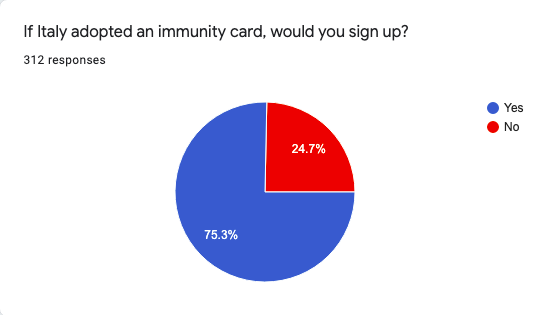
Many of those in favour of the idea live in countries where the vaccine roll-out is proceeding faster than Italy’s, notably the US and the UK, where several respondents said they’d already had their jabs.
“We are Americani who own a home in Italy. We have both been vaccinated and want to be able to travel to our home after over a year of absence. We strongly support a vaccination immunity card as we believe it could help free up travel again,” wrote Francine.
“I want to come and spend loads of money in Italy! I’ve been vaccinated and just want to be there not here in Brexit Britain,” said Philippa.
READER QUESTION: Can I travel to Italy if I’ve had both doses of the Covid-19 vaccine?
Like her, many readers said they thought an immunity passport for travellers would be good for Italy’s struggling tourism industry.
“What is the purpose of being fully vaccinated and yet still not being able to participate in society? Businesses will not survive if at least some people cannot support them,” said Laurel from the US.
Many of our readers agreed that it wouldn’t just be tourism that profited, pointing out that a pass could help reopen restaurants, gyms, cinemas, sporting events and more.
And while freedom to visit was the number one reason given, several people in Italy said it would benefit them too.
“As I am an Indian citizen presently working in Italy, it will ease my travel to and from India. Also, my family members could also join me in Italy,” wrote Mukul, an issue raised by several foreign nationals living in Italy.
“I’d feel so much better about attending public events if I knew that others in attendance had been vaccinated,” said Sarah, making the point that showing you’ve had a vaccine would work to reassure others as well as obtain more freedom for yourself.
Emily, a naturalized Italian originally from Canada, put it more bluntly: “With many people wearing masks with their noses out, I’m sorry but I don’t necessarily trust my fellow citizens if they simply claim to be vaccinated. I want proof!”
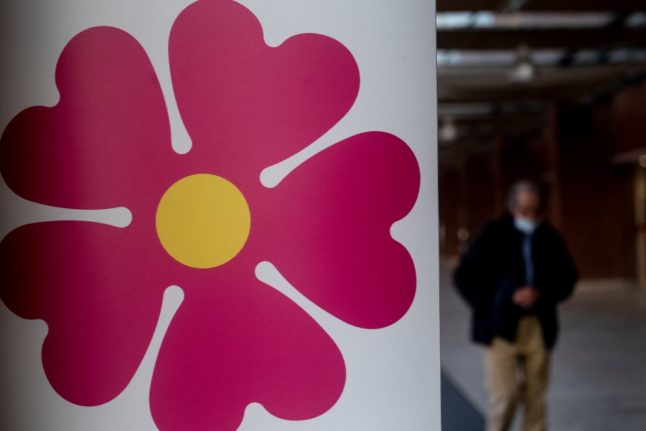
Others argued that a vaccination passport would encourage people to get the jab, ultimately resulting in greater protection for everyone.
“Implementing a Covid vaccination ‘passport’ or ‘immunity card’ would provide an additional incentive for citizens to get vaccinated. If one chooses voluntarily not to get vaccinated, this will [be] responsible for not being able to travel and not other citizens and the government,” wrote Giovanni from Canada.
READ ALSO: Lockdowns and vaccine scepticism – are France and Italy struggling to get Covid under control?
But others pointed out that, while vaccination programmes remain in their early stages, many people in Italy and elsewhere can’t get a vaccine yet even if they want to – especially if they’re young.
“My main issue is that it is going to mean lots of older non-working people will be clear to travel but not the majority of the younger population – the workers and holidaying contributors to the economy – so vaccination would need to really speed up and be as open to all as possible. Otherwise you may cause a divide socially between those that have the immunity card and those that don’t,” said Matt, a Brit living in Italy, where most young, healthy adults are months away from receiving their jabs.
Charlotte, also from the UK, suggested accepting a negative test result instead of a vaccination certificate, the solution proposed by the European Commission. “Can see the logic in eventually rolling these out, after everyone who can have a vaccine is offered one, but before then it’s unfair to young people who have followed the same rules to stay at home (a lot in order to protect older generations), and are now at the back of the queue to receive vaccines,” she wrote.
Others said the scheme risked discriminating against people who can’t get vaccinated for medical reasons, immigrants who aren’t enrolled in public healthcare systems, or people in developing countries that haven’t been able to secure as many doses of the vaccines as wealthier nations.
READ ALSO:
- ‘56 million by June’: Italy unveils new plan to accelerate Covid vaccines
- Italy considers giving single dose of vaccine to people who have had Covid-19
- Italy blocks export of AstraZeneca vaccine doses to Australia
Unfairness was the top objection raised to a potential vaccine pass, with other concerns including privacy, data security, whether you’d have to pay for a pass, and the possibility that people would find a way to forge documents or otherwise cheat the system.
“I worry that people that need to be prioritized for the vaccine such as elderly or compromised immune systems or essential workers would be corruptly bumped for friends of those in charge, or people with money who pay to skip the line and thus leaving the most vulnerable exposed,” said Brynn, an American living in Italy.
Another concern raised was the potential for pressure to have the vaccine. The Covid-19 vaccination is optional in Italy, although everyone who is eligible is urged to get it, and if a vaccine pass is introduced it may be harder to travel without the vaccine, without being subject to the restrictions currently in place such as taking a test beforehand or isolating on arrival.
Some familiar with the pace of Italian paperwork feared that immunity passes would simply mean more red tape. “In three months, it’ll be worthless when everyone is vaccinated. And, the Italian bureaucracy being what we know it is, it’ll take at least that long to get off the ground!” said Eric from the US.
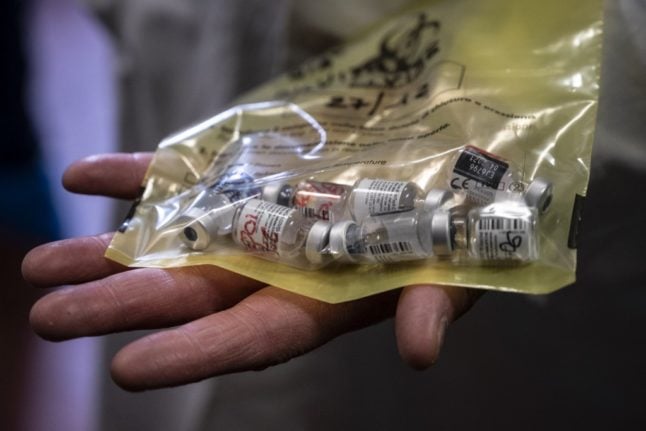
Several people also expressed concern that vaccine passes could lead to complacency among people who assume they are entirely immune from catching or spreading the virus.
“No vaccine is 100 percent, and an immunity card would give a false sense of security and would lead to reduction in best practices, such as social distancing, hand washing etc,” worried Sinead from Ireland.
At the moment, available studies suggest that the vaccines reduce transmission of Covid-19, but measuring this is difficult and conclusive evidence is not yet available.
Other readers questioned whether the vaccines currently available are equally effective against new variants of the virus that continue to emerge, or how often a pass would have to be renewed if it emerges that regular booster shots are required to maintain immunity.
A few described the vaccine as unsafe or experimental, despite the fact that all the vaccines being used in Italy have been approved at the EU level. Although they were developed in record time, they have gone through all the usual stages of testing.
On the whole, most people who answered our survey said they thought an immunity pass was a good idea: just over 70 percent were in favour.
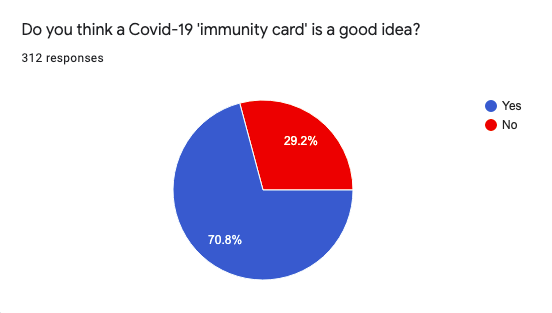
“It will show commitment to protect yourself and others,” said Lynette from South Africa.
And some pointed out that vaccination certificates for other diseases have been required for travel before, without controversy.
“An immunisation card was used for years decades ago when vaccinations were required for smallpox if one was travelling to certain countries,” said Bruce from New Zealand, who declared adopting the Covid-19 equivalent “a no-brainer”.
This article is based on a non-scientific survey of The Local’s readers. Thanks to all those who took part; we received over 300 responses and included a representative sample here.
You can see the responses from readers of The Local’s sister sites around Europe below:

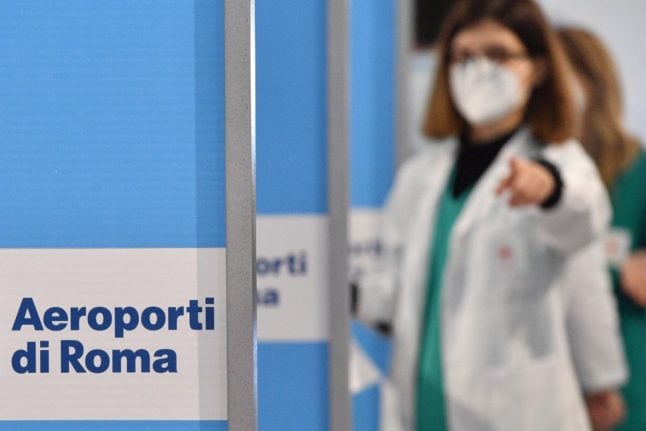

 Please whitelist us to continue reading.
Please whitelist us to continue reading.
What are the new decree changes for renewal of permesso di sorgiorno?
Virginia Hubbell
It is important to note that the EU Prez. regarding a health passport is adding ‘…..or those who have had the virus and recovered, thus have the antibodies’. This statement is the foundation of Virology and the method of creating vaccines to cause your immune system to respond by creating antibodies. If I’ve has the virus and subsequently my immune system has created the antibodies why would I want to get an experimental vaccine? My body was created to respond in this way, it’s how your immune system is strengthened.
You stated in the above article, ‘A few described the vaccine as unsafe or experimental’, please note that this is an accurate description of this shot~at least in the USA it has been released under the Experimental Vaccine authorization. Which means that it IS experimental which prevents one from suing the Pharmaceutical company for an adverse reaction or death, note the fine print, life insurance companies are not giving benefits to the beneficiaries of the policy if the insured was given the ‘Experimental Vaccine’ and then died.
All vaccines have possibly side effects and risks which must be weighed against the perceived benefits. My concern is that in our eagerness to ‘get back to normal’ we are giving up personal freedoms, liberties and movement. It comes down to each individual making the best informed and educated health decisions for themselves and not being bullied, coerced, bribed or pressured into receiving a shot.